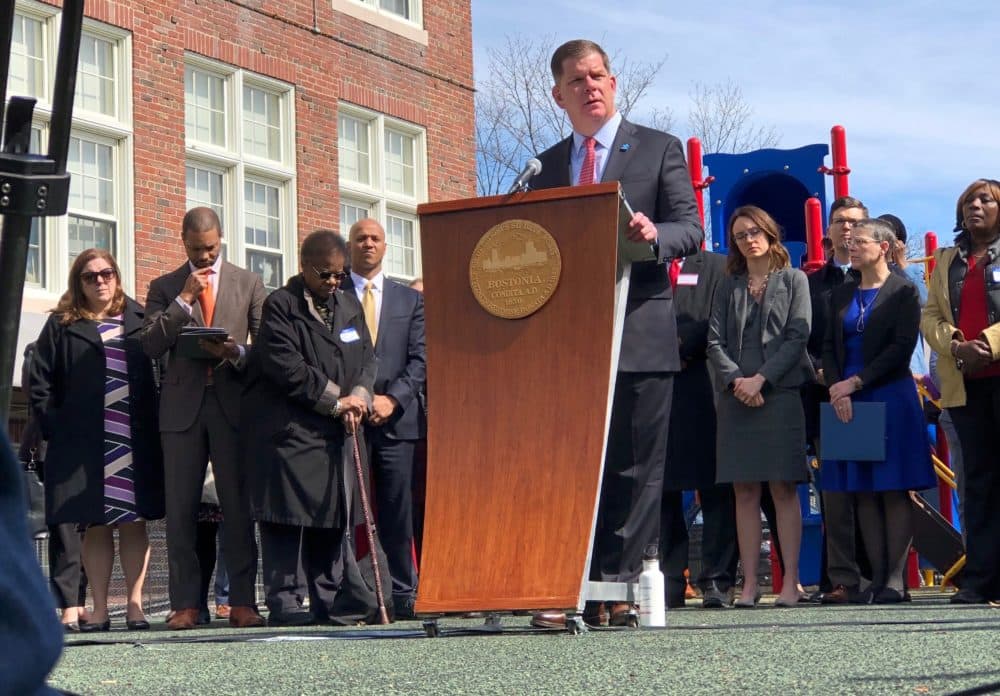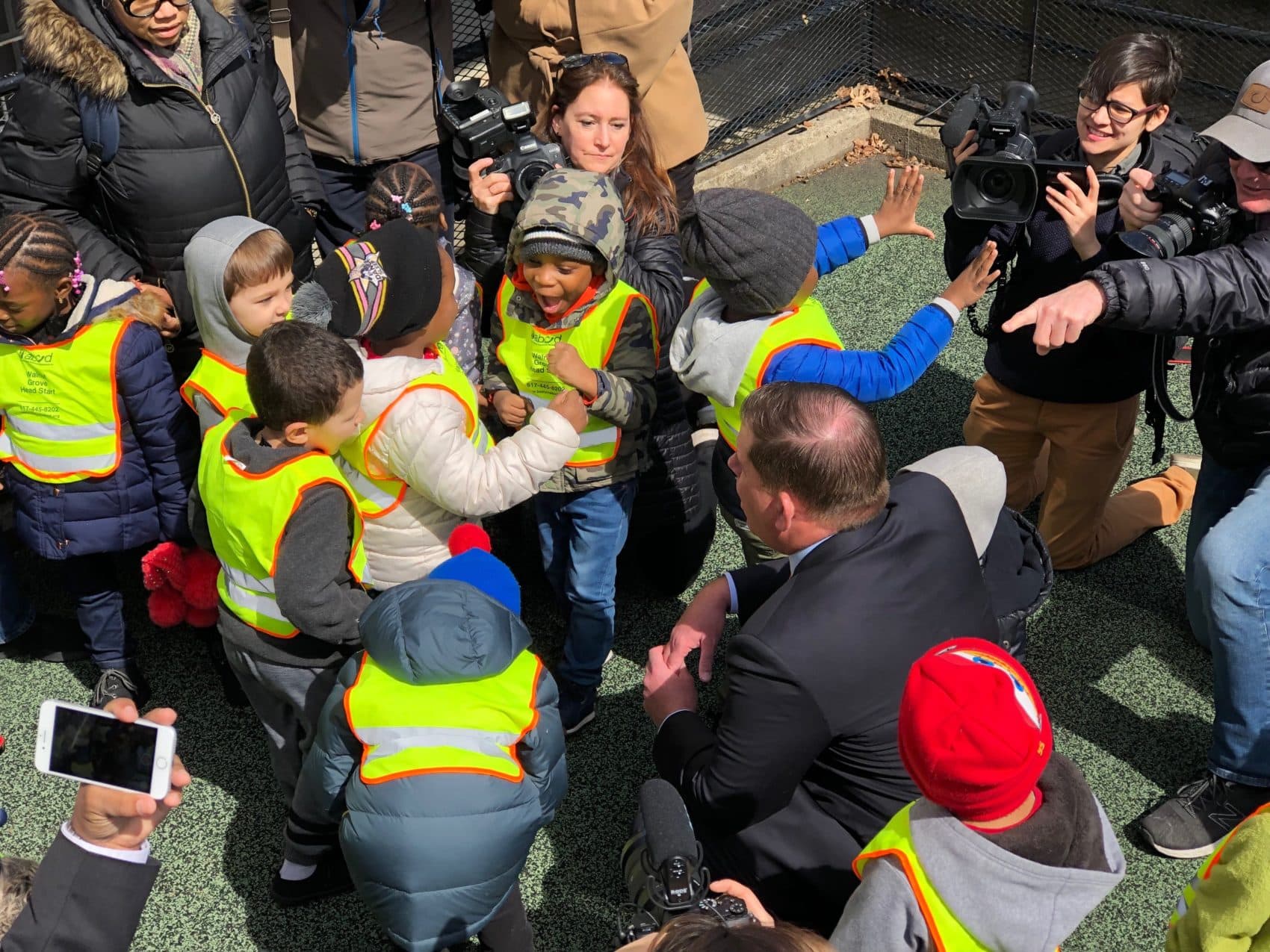Advertisement
Halfway To Universal Pre-K In Boston, Walsh Sees The Finish Line

Parents have waited a long time for universal pre-kindergarten in Boston, but the end may be in sight.
On Tuesday morning, Mayor Marty Walsh announced the city would offer $15 million in new grants to entice local nonprofits to provide 750 additional "high-quality" pre-K seats for 4-year-olds.
He anticipated that those remaining seats would be created by 2024, finally closing the 1,500-seat gap that existed as he took office in 2014.
As Walsh defines it, "high-quality" implies a particular vision of a pre-kindergarten classroom, in which two well-trained, well-paid teachers are teaching at most 20 students in an accredited program which is in compliance with state standards.
That vision is a long way from the statewide status quo, in which pre-kindergarten teachers are paid less than their peers and the quality of programs varies widely.
"Professionally trained teachers, professional classrooms: it's not a simple solution," Walsh said, in response to a question about the gradual roll-out of the additional seats. If pre-K is truly universal in Boston by 2024, that will mean that the city gained, on average, 150 seats each year over the course of a decade.
At Tuesday's event, Walsh and other city officials touted what they called Boston's "mixed-delivery" approach to expanding high-quality pre-kindergarten, in which community organizations contract with the city to expand and improve their programs rather than adding them entirely within public schools.
Both Walsh and Boston Public Schools interim superintendent Laura Perille described "mixed delivery" as a strength of the system, rather than a compromise. Perille said community-based centers can better cater to families' need for "different schedules and different environments," while still meeting high standards.
Advertisement

Chaokee Calderon, who spoke at the announcement, agreed.
Her 4-year-old daughter, Khailee, didn't get a seat in a BPS pre-K program; the family applied too late, Calderon said, and "seats are very limited." And so she applied for a space in the Head Start program at ABCD Walnut Grove in Dorchester, which Khailee got.
Calderon said it was a blessing. The facility is on her commute home from work, and works in partnership with Boston Public Schools. The fact that it is also an independent community center, Calderon said, has its own advantages.
"In Boston Public Schools, you're not able to sit down and have breakfast with your child, help in the classroom, meet her classmates," Calderon said. "Here, it's more open. I feel that I'm helping her transition into public school next year."
Walsh juxtaposed his approach with "the New York model," by which Mayor Bill de Blasio -- first elected the same year as Walsh — expanded school-based pre-kindergarten to more than 50,000 4-year-olds across New York City within four years.
The program has drawn widespread acclaim, and in 2017 de Blasio proposed "3-K," an additional year of free early education for 3-year-olds, set to be universal by 2021.
But de Blasio did so with the help of nine-figure annual commitments out of New York's state budget.
Tuesday morning, Walsh gently rapped Massachusetts officials for failing to provide similar support to his efforts. "On the statewide level, they've talked about [universal pre-K] for years," Walsh said. He publicly asked for help only to watch a series of attempted bills stall out. "Maybe this will push that now."
And though some of Boston's early expansion was backed by a federal Preschool Expansion Grant awarded to Massachusetts in 2015, that grant expires this summer, requiring Boston and five other cities to pick up the slack.
